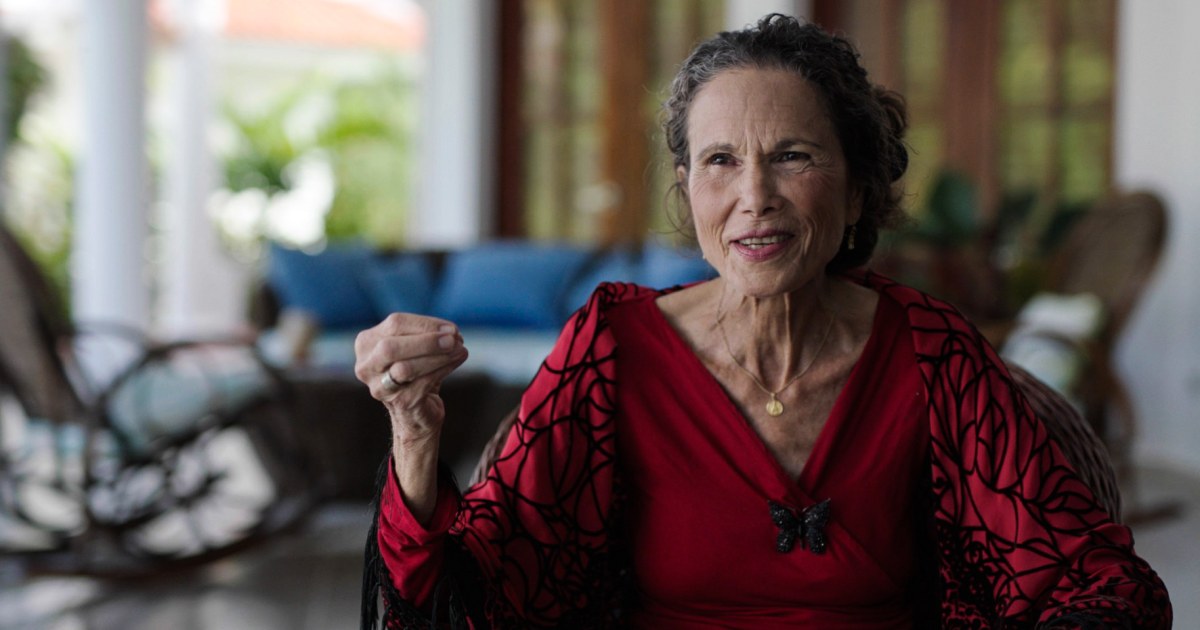Alvarez reflected on how it took her a while to understand the traumas of a dictatorship through her parents.
“They were always so afraid of us speaking up, and always suspicious, and it helped me to understand them and their generation,” she said. “The trauma, even after the dictator dies, a people is traumatized; the dictator stays in their imagination. So, it helped me to understand them and their generation, which has been called ‘la generación perdida’ (the ‘lost generation’) because so many in that generation lost their lives.”
The documentary ends with her most recent novel, “The Cemetery of Untold Stories,” which Alvarez published this year at age 74. The book is about a veteran novelist who creates a graveyard for unfinished stories and characters.
Alvarez said that after arriving in Queens, she felt that her family “had lost everything.” But in spite of feeling like an outsider, poetry helped her find a new home.
“I think when I came into English as a 10-year-old, one of the reasons that I was attracted to poetry was that it was so rhythmic in cadence and it reminded me of Spanish,” she said. “It felt like a way that I could speak Spanish in English.”
Alvarez explained that she came from an oral culture in the Dominican Republic.
“I wasn’t really a reader,” she said. “We didn’t really have that many books around, but we had that oral rhythmic culture of recitations, and little poems and ditties.”
‘All-American’ includes southern Americas
One of the poems that inspired Alvarez once she was in the U.S. was “I, Too” from the Harlem Renaissance poet Langston Hughes.
In the poem, Hughes wrote: “Tomorrow, I’ll be at the table when company comes. Nobody’ll dare say to me, ‘Eat in the kitchen,’ then.”
Alvarez recalled how reading that verse felt like Hughes was making a promise — she too could someday sit at the table of mainstream America.
This would later inspire her to write “I, Too, Sing América,” a take on Hughes’ poem, where she defines herself as “truly an all-American writer.”
“I really am an all-American citizen, including all of the southern Americas that we sometimes leave out when we say America. So, I think of myself very much as permeable,” she said, “those skills of really connecting over the artificial hurdles that people create of us and them, and identity that has to be set, is something that you learn to shed when you’re writing.”
And with more than three decades as a published author, Alvarez still uses poetry to boil down her writing to essential truths.
“I begin each writing day by reading poetry, even when I’m writing prose because for me that sort of sets a high bar for what language can also do,” she said. “In poetry you strip all the unessential away.”
Chronicling a dictatorship, through a female lens
When examining Alvarez’s legacy, the documentary establishes her as one of the most significant voices in Latina literature.
“Julia has carved a path for young women and their voices to break into the American mainstream,” Cuban American filmmaker Adriana Bosch said in a phone interview. She produced and directed “Julia Alvarez: A Life Reimagined.”
Bosch explained that Alvarez’s writing shifted the lens from male-dominated stories to female-dominated stories.
“She wanted to tell the story of migration from a female point of view. And I think she hits this idea on all cylinders with ‘In the Time of the Butterflies,’” she said.


